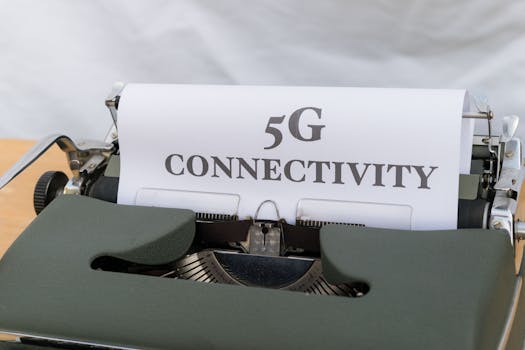5G and Beyond: What’s Next for Africa’s Telecommunications Landscape?

5G and Beyond: What’s Next for Africa’s Telecommunications Landscape?
5G and Beyond: What’s Next for Africa’s Telecommunications Landscape? The advent of 5G in Africa is set to revolutionize the continent’s telecommunications landscape, bringing with it unprecedented speeds, low latency, and a plethora of new use cases. As the world becomes increasingly digital, Africa’s telecommunications sector is poised to play a critical role in driving economic growth, social development, and innovation.
The current state of 5G in Africa is still in its infancy, with only a handful of countries having launched commercial 5G services. However, the pace of deployment is expected to pick up in the coming years, driven by the growing demand for high-speed data services and the need for more efficient and reliable connectivity. According to a report by GSMA, 5G is expected to account for around 10% of total mobile connections in Africa by 2025, up from less than 1% in 2020.
The Potential Impact of 5G in Africa
The potential impact of 5G in Africa is vast and far-reaching. With its ultra-high speeds and low latency, 5G is set to enable a wide range of new use cases, from enhanced mobile broadband and mission-critical communications to massive machine-type communications and ultra-high-definition video streaming. For instance, 5G is expected to play a critical role in the development of Africa’s digital economy, enabling the growth of e-commerce, digital payments, and online education. Additionally, 5G is set to improve healthcare outcomes in Africa, enabling the use of telemedicine and remote health monitoring, as well as enhancing the overall quality of healthcare services.
Furthermore, 5G is expected to have a significant impact on Africa’s agricultural sector, enabling the use of precision agriculture and smart farming techniques. With the ability to collect and analyze data from sensors and drones, farmers will be able to make more informed decisions about planting, harvesting, and crop management, leading to increased yields and reduced waste. According to a report by the International Telecommunication Union (ITU), the use of 5G in agriculture could increase crop yields by up to 20% and reduce water consumption by up to 30%.
Challenges and Opportunities
Despite the potential benefits of 5G in Africa, there are several challenges that need to be addressed. One of the major challenges is the lack of infrastructure, particularly in rural areas where the majority of Africa’s population lives. The cost of deploying 5G infrastructure is high, and many operators are struggling to make a business case for investment in rural areas. Additionally, there is a shortage of skilled personnel to deploy and maintain 5G networks, as well as a lack of awareness about the benefits of 5G among consumers and businesses.
However, these challenges also present opportunities for innovation and investment. For instance, the use of alternative technologies such as satellite and TV white spaces could help to extend 5G coverage to rural areas. Additionally, the development of new business models, such as community-based networks and public-private partnerships, could help to make 5G more accessible and affordable for consumers and businesses. According to a report by the World Bank, the use of alternative technologies and business models could help to reduce the cost of deploying 5G infrastructure by up to 50%.
What the Future Holds
So what does the future hold for Africa’s telecommunications landscape? In the short term, we can expect to see the continued rollout of 5G services across the continent, with more countries launching commercial 5G services in the coming years. We can also expect to see the development of new use cases and applications, such as enhanced mobile broadband, mission-critical communications, and massive machine-type communications.
In the long term, we can expect to see the advent of even more advanced technologies, such as 6G and quantum computing. According to a report by the ITU, 6G is expected to have speeds of up to 1 Tbps, making it possible to download a full-length movie in just a few seconds. Additionally, the use of quantum computing is expected to enable the development of new applications and services, such as secure communication and advanced data analytics.
In conclusion, the future of Africa’s telecommunications landscape is bright, with the advent of 5G and beyond set to drive economic growth, social development, and innovation. While there are challenges to be addressed, these also present opportunities for innovation and investment. As the continent continues to evolve and grow, we can expect to see the development of new technologies, new use cases, and new business models, all of which will help to shape the future of Africa’s telecommunications sector.




